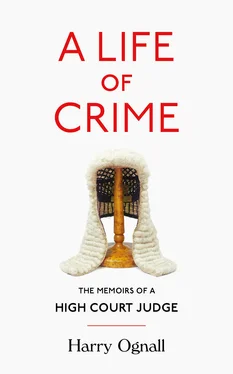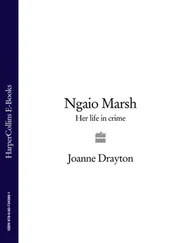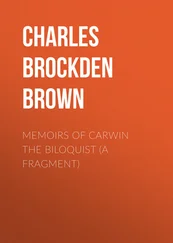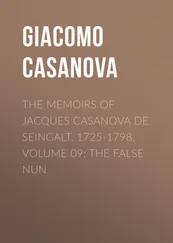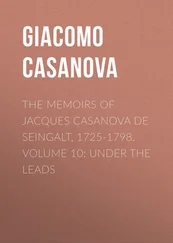I ought to say that this aspect of my schooling should not only be seen in the context of its time, but pales into insignificance when I acknowledge all that the school did for me. My teachers, especially in my last three years, were outstanding. My parents’ sacrifices in sending me there still fill me with wonder. I owe both them and LGS an enormous debt of gratitude for the way in which they fitted me for later life.
The school had some 800 boys. I remember that it was well known that the governors restricted the annual intake of Jewish boys to 10 per cent of the total. My first years there – until the end of the war – were the only time that I felt the scourge of anti-Semitism. Adult Jews were seen as draft dodgers, and had a reputation for using their business acumen during times of acute shortages to profiteer on the ‘black market’.
From the snide comments regularly aimed at me and others, it was easy to guess the sort of observations being made at home by their parents. Life is full of ironies. I was living in a country that at the time was totally committed to the destruction of everything represented by the Third Reich – and by no means least, Hitler’s ‘Final Solution of the Jewish Problem’.
The head of the school was Dr Terry Thomas, known as ‘TT’, although any resemblance to the well-known stage and radio comedian of the same name was entirely coincidental. He ruled (and I mean ruled ) the school for thirty years, the last ten of which coincided with my time there. Like all of us at LGS, I was in awe and fear of him. How well I still can see in my mind’s eye the scene at the end of each term when all 800 boys assembled in the grand, pseudo-Gothic hall upstairs called Upper School. At the end of proceedings ‘Fritz’ Turner, the music master, played the piano as we all lustily and with total incomprehension sang in Latin the school song: ‘Floreat per saecula, schola Leodenses …’ As the last notes died away TT would say ‘Have a good holiday, boys,’ and from 800 uplifted faces, unanimous in their insincerity, would come the response ‘Same to you, sir.’
But, despite his awesome presence, it is to an encounter with the headmaster in my penultimate year at school that, as much as anything, I owe my future calling as a barrister.
When I was seventeen my father took me to see him for an assessment of my chances of getting into Oxbridge if I stayed on at school for an additional year. Neither of us ever forgot his reply.
‘The reports I have,’ he said, ‘suggest that your son has not learned a great deal, but that he has a talent amounting almost to genius for making what little he knows seem a good deal more.’ As we walked to the tram stop to go home, my father said to me that this pointed possibly to a career at the Bar. And that is how it happened.
After that, I never gave thought to any other option, including the profession of solicitor. For me, that side of legal practice seemed too cerebral, too closeted an existence. I had no connections at all with the Bar, nor did we know of anybody who could help me along that road. It was simply that I instinctively knew that was the way for me to go. Not for the only time in my life, I was lucky.
I went up to Lincoln College, Oxford in the autumn of 1953 to read law. Looking back, I have always cherished the privilege of being an ‘Oxford man’, but there has also been another side to that coin for me. I rowed and played tennis for my college. In my last year, I was President of the University Law Society. I made good friends. Despite all that, I still feel that I worked too hard, and did not make as much as I should have done of the many freedoms offered by undergraduate life. Weekends were often quite lonely. College chums with money – and there were still plenty of them in those days – would take themselves off to the fleshpots of London, and the tolling of many church bells on Sundays did nothing to lift my spirits. Perhaps my memory plays tricks?
The exciting news came in my last summer term, when I was offered a year’s scholarship to the University of Virginia Law School to write a comparative law thesis for a Master’s degree. I was fortunate to receive a Fulbright award to fund my travel expenses.
I spent a very happy year in the USA, during which I travelled extensively. It gave me a lasting affection for so many things that great nation has to offer. My brother and sister and my younger son all live there. My wife and I are frequent visitors, and we hugely enjoy the time we spend in California with our grandsons.
In those days one could read for the final Bar examination by correspondence course, and (working from home) that is what I did. As every intending barrister must do, I joined one of the four Inns of Court (in my case, Gray’s Inn), and regularly travelled the 200 miles to London to fulfil the requirement of dining in hall on a stipulated number of occasions. Having passed the final exam, on 25 November 1958, wearing a dinner suit rented for the occasion from Moss Bros, I bowed before the Treasurer of the Inn, who called me to the Bar.
The summer before I went into chambers for the first time, I was invited by Mr Justice Pearson (later a Lord of Appeal) to be his marshal on circuit in the Midlands. (I had met him when I was at Oxford.) A marshal is a kind of aide de camp to the judge, and occupies a purely ceremonial position. I stayed in the local judges’ lodgings with him, and accompanied him in sitting on the bench, and so got my first glimpse of what my future was about. It was a fascinating few weeks. I never forgot his kindness.
I joined chambers in Leeds, and became a member of the North-Eastern Circuit, to which all those practising in Yorkshire, Durham and Northumberland belonged. It exercised a modest disciplinary function, but at its core it was a giant freemasonry for all of us who fought against each other forensically by day, and caroused together by night in regularly held Bar messes in cities up and down the Circuit. Those of us who travelled the Circuit also came to know every decent eating place on offer wherever we went. The barrister who practises in criminal courts has as his essential work of reference Archbold’s Criminal Pleading and Practice . One of the boon companions of my later days at the Bar was Peter Taylor QC, later to become no less than Lord Chief Justice. It was he who advised me that there were two essential books to be carried on our professional travels – an out-of-date Archbold, and an up-to-date Good Food Guide !
I became a pupil in Vince’s Chambers in Leeds. As protocol dictated, my father paid 100 guineas to Alter Hurwitz, head of the chambers, for me to undertake a year’s pupillage with him. My status as a pupil did not prevent me from accepting instructions to draft pleadings or from being briefed as an advocate – provided anything was offered to me. I had no independent means, which meant it was imperative that I should begin receiving work from solicitors, either in private practice or otherwise, as soon and as frequently as I could. But I was unknown to them. How was this to be achieved? The answer lay in the hands of the clerk to the chambers. There you took pot luck.
In short, the clerk was the interface between the barristers in the chambers and those who wished to instruct them. In those days, they received 10 per cent of all fees earned by ‘their’ barristers. Unless the solicitor in question asked for a particular barrister, it was left to the clerk to decide who he would favour with a case. In trivial cases, such as driving without due care and attention, the solicitor would not usually be concerned with the identity of the youngster chosen to conduct the case. They left it to the clerk. So you can readily see that for someone like me the clerk’s power of patronage was enormous. I was fortunate that in those very early days my clerk, Frank Davies, took a shine to me. I thus received a fair number of otherwise unassigned instructions.
Читать дальше
